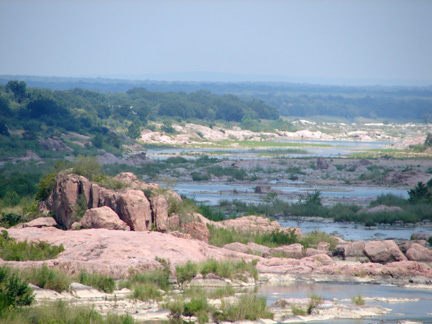
The famed wide-open spaces of Texas are under siege, threatened by ever-expanding suburban development and fragmenting into ever-smaller pieces as people in cities buy up land in the country. The good news is conservation-minded landowners stand as bastions against these trends, places like Llano Springs Ranch south of Junction, which on May 21 received the Leopold Conservation Award for Texas from Sand County Foundation and the Texas Parks and Wildlife Department, part of the department’s Lone Star Land Steward Awards program.
Every year, TPWD and Sand County Foundation recognize private land stewards in 10 ecological regions across the state, as well as the Leopold Conservation Award winner. For the fourth year, the Lone Star Land Steward Awards benefit from an association with Sand County Foundation, an international non-profit organization devoted to private landowner conservation. Ecoregion award recipients and the wildlife management association recipient receive $1,000 from the foundation, while the Leopold Conservation Award recipient receives $10,000 and the Leopold crystal. The purpose is to recognize outstanding examples of voluntary stewardship.
“I’m proud that we’ve taken a ranch that had been neglected for many years and turned it into something to be proud of, and we’ve done it ourselves,” said Tom M. Vandivier, part of the five-generation farm and ranch family which owns the 5,100-acre spread in Edwards County. He works the first part of the week as an attorney near Austin, then on Thursdays heads to the ranch and works all weekend.
“Whoever dreamed up this idea for land steward awards is right on target with what’s going on in ranching these days,” Vandivier said. “It’s a great motivator. When we learned about this, it got us motivated to do more. We’re thrilled to have won.”
The ranch contains the headwaters of the South Llano River, which flows into the Colorado. Years of work to remove water-sucking cedar and restore water-friendly native grasses are benefiting everything downriver, including thirsty cities like Austin. Land with restored grasses instead of cedar and rocks holds rainwater like a giant sponge, releasing it slowly and providing natural filtration. This helps aquifer recharge and prevents erosion, sending cleaner water downstream. Continue reading Wildlife Conservation Reigns at Llano Springs Ranch